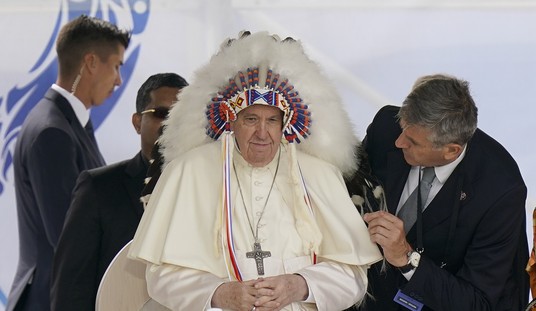Normally, the Chinese have the most trouble with Tibet and their efforts to wrest themselves from Beijing’s control. Today, though, the focus in China falls on the Xinjiang province, where protests by ethnic Uighurs got violently suppressed by Chinese authorities. At least 140 are reportedly dead, although hardly a peep has been heard from most American media:
The official death toll in riots in China’s northwestern Xinjiang region rose sharply Monday, with the government saying that 140 had been killed in what appears to be one of the deadliest episodes of unrest in China in decades.
Police said at least 828 other people were injured in violence that began Sunday in Urumqi, Xinjiang’s capital. Witnesses said the conflicts pitted security forces against demonstrators, and members of the region’s Turkic-speaking Uighur ethnic group against members of the country’s Han Chinese majority. Many among the predominantly Muslim Uighurs have chafed at Chinese government rule. …
Xinhua quoted Liu Yaohua, a senior police official in Xinjiang, as saying that rioters had burned 261 vehicles, including 190 buses and two police cars, several of which were still ablaze as of Monday morning. Mr. Liu said the death toll of 140 “would still be climbing.”
As evening fell in Urumqi Monday, witnesses said that paramilitary troops of the People’s Armed Police, backed by armored personnel carriers, were patrolling largely calm city streets. Many businesses remained shuttered and gates of the city’s central bazaar, which was the scene of unrest Sunday night, were closed.
Police said they were still searching for dozens of people suspected of fanning the violence. Several hundred people have already been arrested in connection with the riot, police said, and the government said it was bringing “ethnic officials” from nearby areas to help with interrogations.
As with military coups, not all protests are created equal. Chinese officials have begun to blame foreign agitators for fomenting the violence in Urumqi and throughout the Xinjiang region, as did Iran with their unrest over the rigged presidential election. Unlike Iran, however, China has some factual basis for this claim. Al-Qaeda has recruited and trained Uighur radical Islamists, who want independence for Xinjiang in order to establish a Turkic theocratic state, just as the Taliban created in Afghanistan.
That doesn’t mean that other Uighurs don’t have legitimate claims on democratic reform and independence for better reasons, of course. The AQ-Taliban connection to the Uighurs makes it difficult to determine which forces are in play in Xinjiang at the moment, though. Broad assumptions in either direction would be a mistake, especially since the “freedom fighters” causing most of the trouble in that region don’t support freedom at all — just a change of tyrants.
Several e-mailers suggested that the Obama administration needs to get more vocal about this uprising in Xinjiang. In this case, “meddling” would be a mistake, and the silence of the White House is probably the best policy for the moment until the protest leaders — and their goals — become more clear.








Join the conversation as a VIP Member